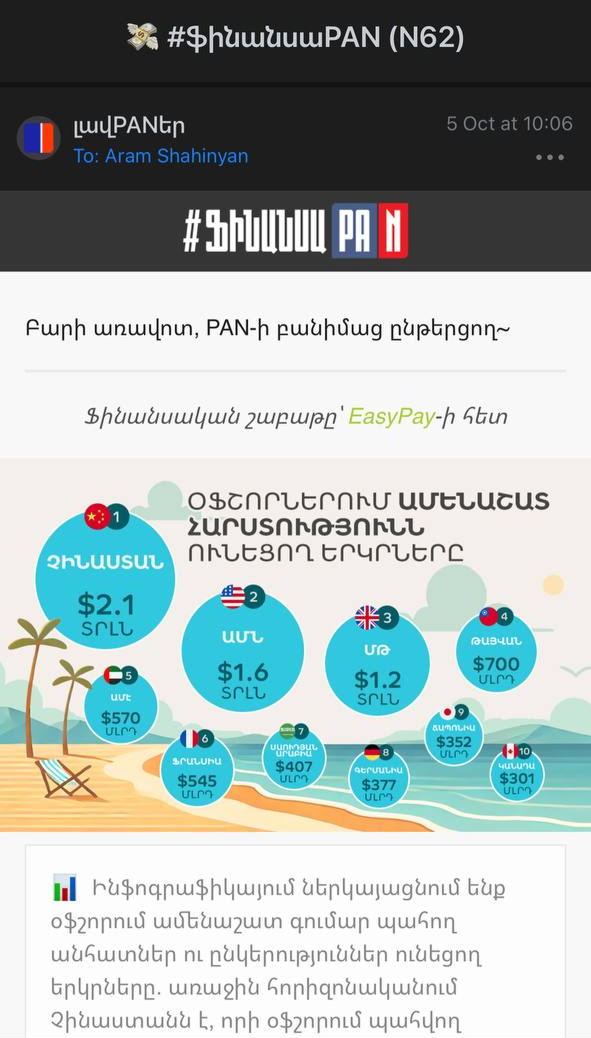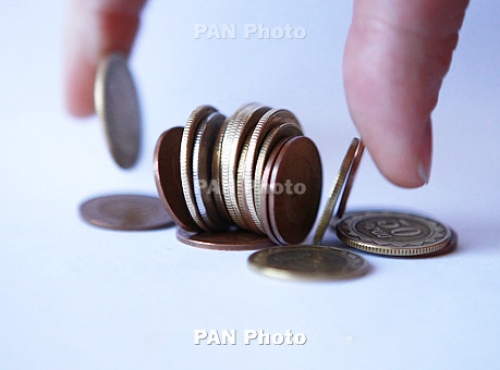Fitch Ratings has affirmed Armenia's Long-term foreign and local currency Issuer Default Ratings (IDR) at 'BB-' with a Stable Outlook. The Country Ceiling has been affirmed at 'BB' and the Short-term rating at 'B', Reuters said.
The affirmation reflects the following factors: The consolidated general government deficit fell to 1.4% of GDP in 2012, down from 2.8% of GDP in 2011, outperforming the target for the second successive year. The government succeeded in meeting its goal of increasing tax revenues, although under-execution of capital spending also contributed, by 1.2pp of GDP.
The deficit will increase again in 2014 due to the costs of introducing a pension reform, estimated at 0.5% of GDP in the first year. General government debt rose 1.8pp of GDP to 44.1% of GDP in 2012, but Fitch expects it to stabilise from 2013 onwards.
Currency depreciation is a risk to solvency given that over 80% of government debt is foreign currency-denominated. External sovereign debt service is modest, but rising.
The government aims to deepen the local capital market. Real GDP grew by 7.2% in 2012, faster than in any other rated sovereign in Emerging Europe, driven by agriculture, mining and services.
Faster growth has accompanied a government drive to improve the business climate, although qualitative weaknesses persist. Growth slowed in Q213, but Fitch expects it to reach 5% in 2013-15, higher than its previous forecasts.
Consumption and net trade are contributing, while investment is weak. Headwinds will come from higher gas prices and slower growth in Russia. A current account deficit (CAD) above 10% of GDP is still a rating weakness, although it is gradually narrowing, driven by exports. The CAD is forecast to fall below 10% of GDP in 2014, with FDI accounting for an increasing share of CAD financing. Reserves will be flat as Armenia starts to repay IMF lending.
Armenia's rating is supported by a relatively strong macroeconomic framework and a good inflation track record in comparison with the peer group of 'BB' rated sovereigns. However, rising food prices and a 15.1% rise in energy tariffs (stemming from higher gas import costs) pushed up inflation to 8.5% year on year, in July 2013. By 2014 inflation should return to the target range, below 5.5%.
The Central Bank of Armenia (CBA) is allowing greater exchange rate flexibility, although dollarisation is high at 63%.






















